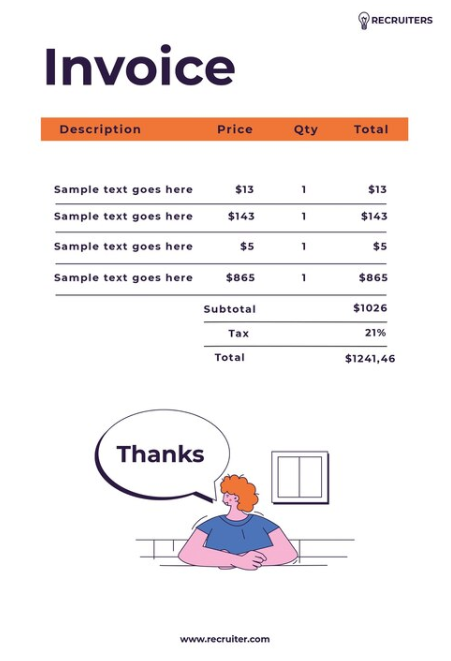Everything you need to know about electronic invoicing for official entities!
Small and Medium-sized Enterprises (SMEs) holding public contracts with the State are required to submit electronic invoices as of January 1, 2023. In an effort to speed up and improve transparency, this new public procurement method mandates that businesses doing direct business with government agencies issue EDI electronic invoices.
As a result, all Portuguese businesses are now subject to the same regulations that governed larger businesses previously, requiring them to sign contracts with the State and submit electronic invoices as of 2021.
An electronic invoice: what is it?
This invoice may be processed automatically and electronically because it was created, sent, and received in an organized electronic format. It is not just a straightforward scan of a paper invoice; it needs to be generated by approved invoicing software. The invoice needs to be sent straight from the issuer's system to the buyer's system after it is issued. In line with European Directive 2014/55/EU on electronic invoicing, the primary goal when sending electronic invoices to public bodies is to streamline communication between the State and its suppliers.
Benefits of Electronic Billing
Companies can benefit from the new electronic invoicing system in a number of ways, including:
reduction of administrative expenses; reduction of time and complexity involved in mailing invoices;
increased dependability and security over conventional invoices;
Simple consultation and reduced physical footprint due to the availability of bills in digital format;
more openness during the whole invoicing procedure;
Better for the environment since it uses less paper and emits less CO2.
EDI: Public Administration's Electronic Invoicing
The use of electronic invoicing, or EDI (Electronic Data Interchange), facilitates communication between public agencies and private agents and encourages openness throughout the billing process. As a result, it is feasible to lower operating and transaction costs, shorten payment deadlines, and guarantee increased dependability and transparency throughout the entire process.
The Portuguese government has made the decision to use electronic invoices, or EDIs, for public contracts. As a result, it has charged eSPap (Public Administration Shared Services Entity, IP) with creating an online platform that links vendors looking to issue invoices and other tax-related papers with state entities (as consumers).
The preferred format for invoices (an XML file containing all of the sent documents) is CIUS-PT.
The model for adopting electronic invoicing in public contracts was outlined by Decree-Law no. 123/2018, of December 28 (amended by Decree-Law no. 14-A/2020, of April 7) and Decree-Law no. 104-A/2021, of November 27. This is the schedule that was chosen based on the size of the businesses:
January 1, 2021 for major firms; January 1, 2023 for small and medium-sized businesses; and January 1, 2023 for microbusinesses.
Effects of Electronic Billing on Businesses and Governmental Organizations
Companies must set up their invoicing systems to issue electronic invoices to any public entity by the deadline set by law, taking into account the size and volume of the business. This is because it is now required for suppliers of public entities to adopt electronic invoicing within the framework of public contracts.
In order for public entities to receive and process electronic invoices, they must expeditiously execute the Electronic Invoicing process.
How to follow the updated billing regulations?
Complying with these new invoicing regulations can be enhanced by using certified invoicing software. You may issue electronic invoices, integrate ATCUD codes in your bills, and discuss invoice series with this certified invoicing software all on the same platform.
Digital signature qualification delayed until 2025
In 2024, certified digital signatures on PDF invoices were supposed to become necessary. But since the ruling was postponed until January 1, 2025, PDF invoices that lack a digital signature will still be accepted as electronic invoices through December 31, 2023.
Congratulations!
For more information, please contact us.
(Author)
Raj Don


Comments
Post a Comment